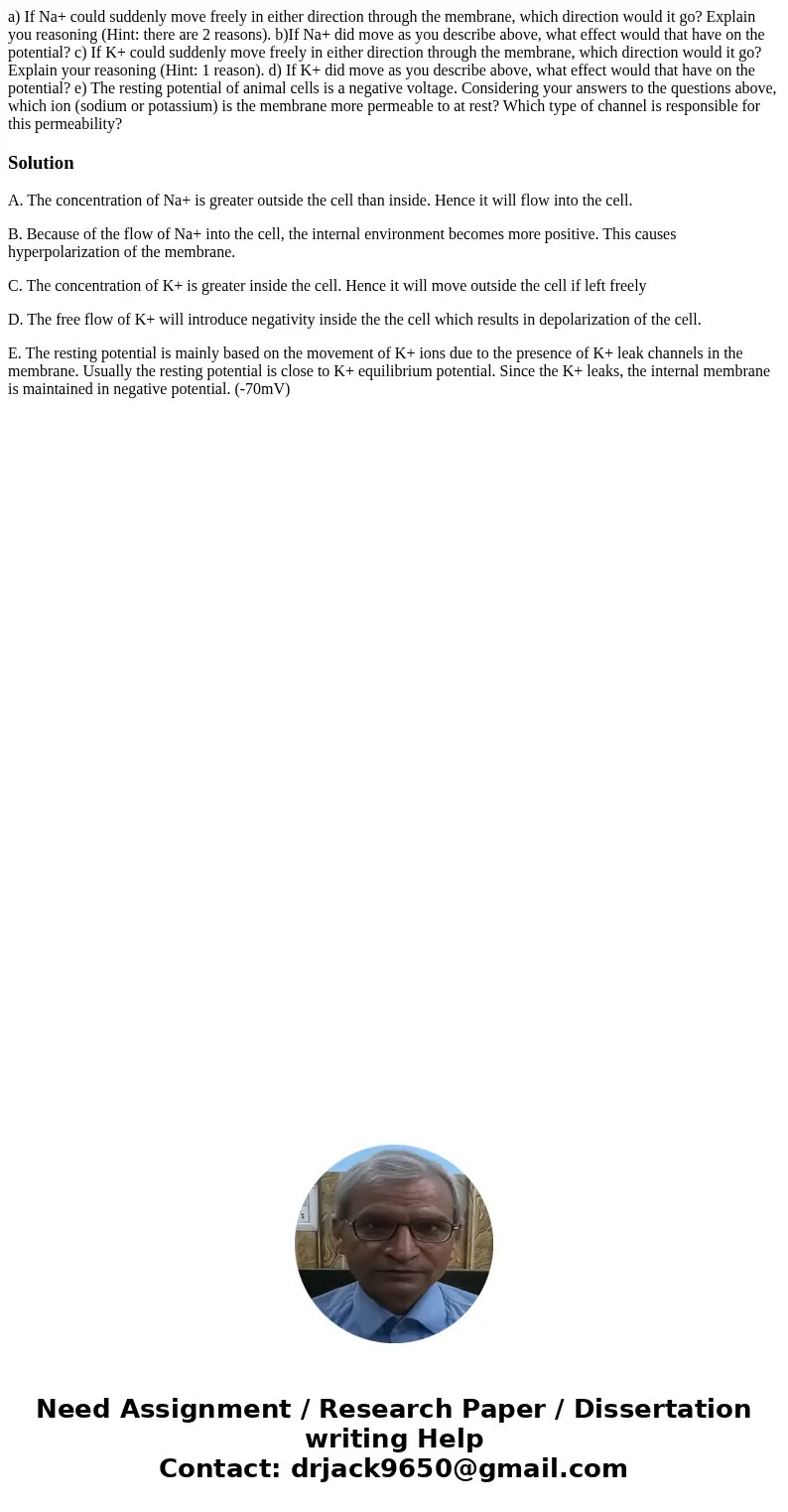a If Na could suddenly move freely in either direction throu
a) If Na+ could suddenly move freely in either direction through the membrane, which direction would it go? Explain you reasoning (Hint: there are 2 reasons). b)If Na+ did move as you describe above, what effect would that have on the potential? c) If K+ could suddenly move freely in either direction through the membrane, which direction would it go? Explain your reasoning (Hint: 1 reason). d) If K+ did move as you describe above, what effect would that have on the potential? e) The resting potential of animal cells is a negative voltage. Considering your answers to the questions above, which ion (sodium or potassium) is the membrane more permeable to at rest? Which type of channel is responsible for this permeability?
Solution
A. The concentration of Na+ is greater outside the cell than inside. Hence it will flow into the cell.
B. Because of the flow of Na+ into the cell, the internal environment becomes more positive. This causes hyperpolarization of the membrane.
C. The concentration of K+ is greater inside the cell. Hence it will move outside the cell if left freely
D. The free flow of K+ will introduce negativity inside the the cell which results in depolarization of the cell.
E. The resting potential is mainly based on the movement of K+ ions due to the presence of K+ leak channels in the membrane. Usually the resting potential is close to K+ equilibrium potential. Since the K+ leaks, the internal membrane is maintained in negative potential. (-70mV)

 Homework Sourse
Homework Sourse